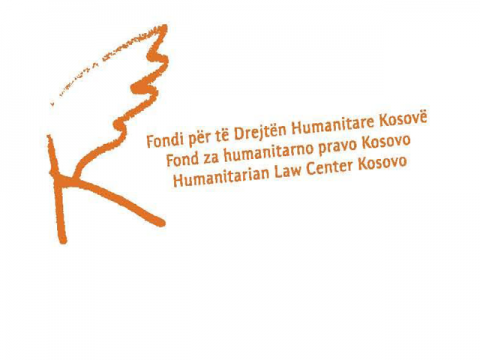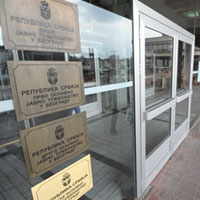
 On Friday, November 24, 2017, the Humanitarian Law Center (HLC), on behalf of the victims, filed an objection to the Office of the War Crimes Prosecutor’s (OWCP) decision not to prosecute General Dragan Živanović, the former commander of the 125th Motorized Brigade of the Army of Yugoslavia (125th mtbr VJ). The OWCP rendered this decision on March 1, 2017, and, contrary to the law, did not deliver it to the legal representative of the victims; however, the very next day, the prosecutor, Dragoljub Stanković, who conducted the investigation, informed Živanović and his defense attorney regarding the decision. The decision to drop the only investigation against a high-ranking officer of the VJ in secret, and thus to subvert the victims’ right to react in a timely manner, clearly shows that the OWCP, contrary to the obligations accompanying its process of EU integration, does not intend to abandon its habitual practice of guaranteeing impunity for high-ranking persons in the military, police and political structures.
On Friday, November 24, 2017, the Humanitarian Law Center (HLC), on behalf of the victims, filed an objection to the Office of the War Crimes Prosecutor’s (OWCP) decision not to prosecute General Dragan Živanović, the former commander of the 125th Motorized Brigade of the Army of Yugoslavia (125th mtbr VJ). The OWCP rendered this decision on March 1, 2017, and, contrary to the law, did not deliver it to the legal representative of the victims; however, the very next day, the prosecutor, Dragoljub Stanković, who conducted the investigation, informed Živanović and his defense attorney regarding the decision. The decision to drop the only investigation against a high-ranking officer of the VJ in secret, and thus to subvert the victims’ right to react in a timely manner, clearly shows that the OWCP, contrary to the obligations accompanying its process of EU integration, does not intend to abandon its habitual practice of guaranteeing impunity for high-ranking persons in the military, police and political structures.

 After 14 years, the first war crimes case before specialized court councils in Serbia came to a close with the new final judgment for the crime at Ovčara near Vukovar. The Humanitarian Law Center (HLC) points out that the trial in this case is one of the best indicators of the ineptitude of Serbian institutions in dealing with the obligation to approach the crimes from the past with responsibility and dedication.
After 14 years, the first war crimes case before specialized court councils in Serbia came to a close with the new final judgment for the crime at Ovčara near Vukovar. The Humanitarian Law Center (HLC) points out that the trial in this case is one of the best indicators of the ineptitude of Serbian institutions in dealing with the obligation to approach the crimes from the past with responsibility and dedication. 









 On December 25, 2017, the War Crimes Chamber of the Belgrade High Court delivered a judgment acquitting Marko Pauković and Dragan Bajić of charges for war crimes against a civilian population, owing to a lack of evidence. As members of the Military Police of the Sixth Brigade of the Republika Srpska Army, Bajić and Pauković were accused of murdering Hasan Rahić (aged 60), Minka Jusić (aged 70) Munira Hotić (aged 54), Đemila Behar (aged 54) and the then minor Safeta Behar (aged 12), in the town of Kamičak (Ključ municipality, Bosnia and Herzegovina), on October 10, 1992. The Humanitarian Law Center (HLC) notes that this is only the third verdict for war crimes cases that has been brought in Serbia in 2017; like the previous two, it is acquitting. In March, the Court of Appeal acquitted Goran Šinik of the murder of civilians in Gradiška (BiH) in 1992; and in April, Neđeljko Sovilj and Rajko Vekić were acquitted of the murder of civilians in the municipality of Bosanski Petrovac (BiH) in December 1992.
On December 25, 2017, the War Crimes Chamber of the Belgrade High Court delivered a judgment acquitting Marko Pauković and Dragan Bajić of charges for war crimes against a civilian population, owing to a lack of evidence. As members of the Military Police of the Sixth Brigade of the Republika Srpska Army, Bajić and Pauković were accused of murdering Hasan Rahić (aged 60), Minka Jusić (aged 70) Munira Hotić (aged 54), Đemila Behar (aged 54) and the then minor Safeta Behar (aged 12), in the town of Kamičak (Ključ municipality, Bosnia and Herzegovina), on October 10, 1992. The Humanitarian Law Center (HLC) notes that this is only the third verdict for war crimes cases that has been brought in Serbia in 2017; like the previous two, it is acquitting. In March, the Court of Appeal acquitted Goran Šinik of the murder of civilians in Gradiška (BiH) in 1992; and in April, Neđeljko Sovilj and Rajko Vekić were acquitted of the murder of civilians in the municipality of Bosanski Petrovac (BiH) in December 1992. 
 On Tuesday, November 28, 2017, the Humanitarian Law Center (HLC) filed a constitutional complaint on behalf of the victims in the Trnje Case for violation of their right to a trial within a reasonable time. This case is being processed before the War Crimes Department of the High Court in Belgrade. The trial in this case was from the beginning obstructed by the accused, who continued with impunity, and during the four years since the indictment was issued, only nine trial days have been held. The HLC considers this case to be a paradigm of war crimes trials in Serbia: all accused persons defend themselves undetained; hearings are scheduled with monthly intervals; a strategy of the defense has for its aim the constant delay of hearings, which is being tolerated; and the few victims who monitor trials believing that they may see justice, are being ignored and humiliated.
On Tuesday, November 28, 2017, the Humanitarian Law Center (HLC) filed a constitutional complaint on behalf of the victims in the Trnje Case for violation of their right to a trial within a reasonable time. This case is being processed before the War Crimes Department of the High Court in Belgrade. The trial in this case was from the beginning obstructed by the accused, who continued with impunity, and during the four years since the indictment was issued, only nine trial days have been held. The HLC considers this case to be a paradigm of war crimes trials in Serbia: all accused persons defend themselves undetained; hearings are scheduled with monthly intervals; a strategy of the defense has for its aim the constant delay of hearings, which is being tolerated; and the few victims who monitor trials believing that they may see justice, are being ignored and humiliated. 
 On Friday, November 24, 2017, the Humanitarian Law Center (HLC), on behalf of the victims, filed an objection to the Office of the War Crimes Prosecutor’s (OWCP) decision not to prosecute General Dragan Živanović, the former commander of the 125th Motorized Brigade of the Army of Yugoslavia (125th mtbr VJ). The OWCP rendered this decision on March 1, 2017, and, contrary to the law, did not deliver it to the legal representative of the victims; however, the very next day, the prosecutor, Dragoljub Stanković, who conducted the investigation, informed Živanović and his defense attorney regarding the decision. The decision to drop the only investigation against a high-ranking officer of the VJ in secret, and thus to subvert the victims’ right to react in a timely manner, clearly shows that the OWCP, contrary to the obligations accompanying its process of EU integration, does not intend to abandon its habitual practice of guaranteeing impunity for high-ranking persons in the military, police and political structures.
On Friday, November 24, 2017, the Humanitarian Law Center (HLC), on behalf of the victims, filed an objection to the Office of the War Crimes Prosecutor’s (OWCP) decision not to prosecute General Dragan Živanović, the former commander of the 125th Motorized Brigade of the Army of Yugoslavia (125th mtbr VJ). The OWCP rendered this decision on March 1, 2017, and, contrary to the law, did not deliver it to the legal representative of the victims; however, the very next day, the prosecutor, Dragoljub Stanković, who conducted the investigation, informed Živanović and his defense attorney regarding the decision. The decision to drop the only investigation against a high-ranking officer of the VJ in secret, and thus to subvert the victims’ right to react in a timely manner, clearly shows that the OWCP, contrary to the obligations accompanying its process of EU integration, does not intend to abandon its habitual practice of guaranteeing impunity for high-ranking persons in the military, police and political structures.


